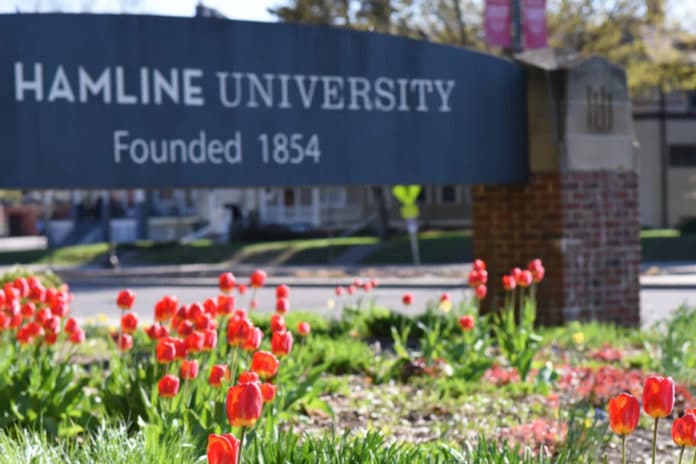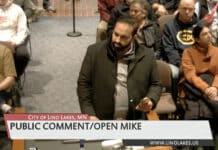Hamline University in St. Paul, Minn., is standing by its decision to punish an art instructor who shared two Renaissance depictions of the Islamic prophet Muhammad in class.
Reports of the instructor’s removal generated outrage among free-speech advocates, who called the school’s actions “one of the most egregious violations of academic freedom in recent memory.”
The professor has not been identified by name in any reports, but the university’s vice president of “inclusive excellence,” David Everett, confirmed with the student newspaper that the instructor is no longer employed by the school.
“Hamline’s nonrenewal of the instructor for showing an image of Muhammad violates the instructor’s pedagogical autonomy — protected by basic tenets of academic freedom — to determine whether and how to introduce or approach material that may be challenging, upsetting, or even deeply offensive to some,” the Foundation for Individual Rights and Expression wrote in a letter to the university.
Hamline University President Fayneese Miller responded to the backlash in a campus-wide email Saturday. In her email, Miller suggested that no instructor is allowed to do anything in class if it goes against any student’s faith.
“As has been reported, this past semester an adjunct instructor displayed images of the prophet Muhammad. Students do not relinquish their faith in the classroom. To look upon an image of the prophet Muhammad, for many Muslims, is against their faith,” she said in a prepared statement included in the email.
“Questions about how best to discuss Islamic art have been raised by many academics and is certainly an issue worthy of debate and discussion. For those of us who have been entrusted with the responsibility of educating the next generation of leaders and engaged citizens, it was important that our Muslim students, as well as all other students, feel safe, supported, and respected both in and out of our classrooms. As we have stated, in the immediate aftermath of students’ expressed concerns, the University’s initial response and actions were to address our students’ concerns. And, contrary to what has been reported and become the story, it is important that this aspect be reported. It is also important that we clarify that the adjunct instructor was teaching for the first time at Hamline, received an appointment letter for the fall semester, and taught the course until the end of the term,” her statement continued.
Miller concluded the email by acknowledging that the incident has been “painful for our community.”
“Many of you have been contacted by reporters, your colleagues or friends at other universities, and some of you have received violent anti-Islamic statements targeting our community,” she said. “We thank our students and faculty for helping us continue to make Hamline a supportive and welcoming space for all.”











